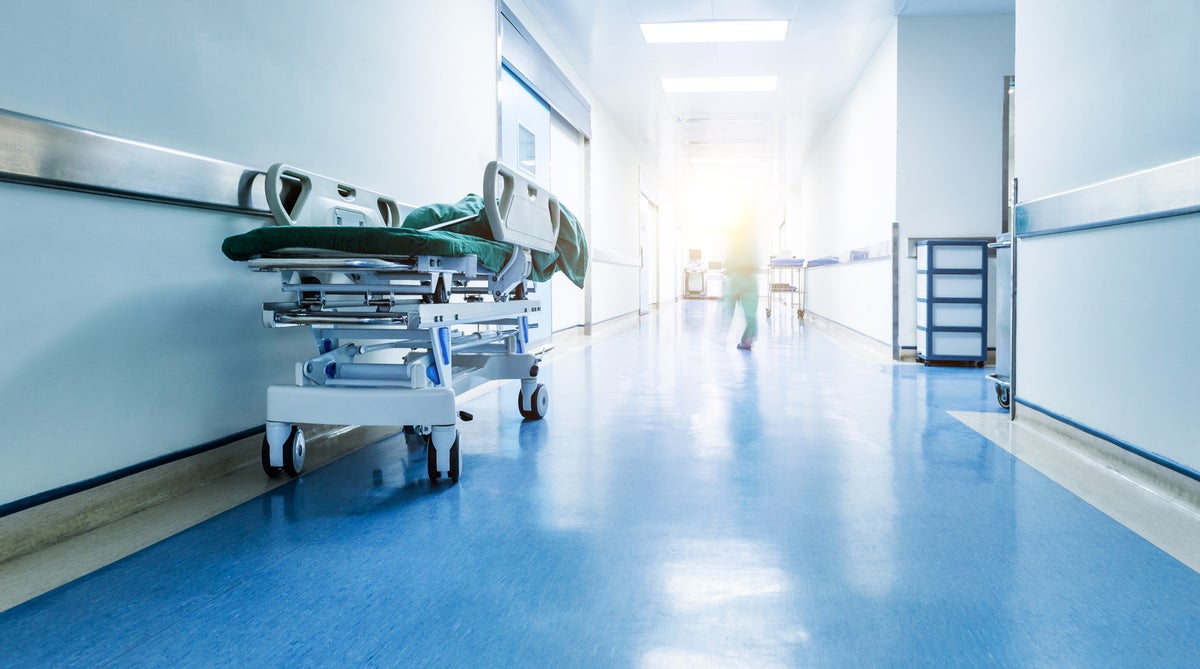
A 43-year-old woman vacationing in Greece was diagnosed with cancer — and told that she had to stay in the country to receive immediate treatment.
Sandra Gutierrez arrived in Crete late last month ahead of a destination wedding. When she landed, she noticed bruising on her arm and decided to get checked out, per Today.com.
Ms Gutierrez had suffered from anaemia in the past, so, initially, she wasn’t concerned. But when she sought medical help, she was shocked to find out she had a type of cancer called acute lymphocytic leukaemia (ALL). She was hospitalised and told she could not travel.
“I have to be here for at least a month,” she told Today.com. “With [my condition], the sooner the treatment, the better, and it has to be in-hospital treatment. There are certain things my body has to do before they can say I can safely go back [home] on a commercial flight.”
Ms Gutierrez said she decided to see a doctor after a friend with medical training prompted her to do so. “I noticed…an anaemia rash, which is like purple [spots]. I called one of my best friends, who is a [physician’s assistant], and she’s like, ‘Sandra, go get your blood done.’” In addition to the rash, Ms Gutierrez said she had recently experienced an unusually long period that lasted three weeks.
When she saw a doctor, she was told she needed emergent care. But she had trouble communicating with her care team due to the language barrier. To make sure she was understanding correctly — and that she really did need to go to an emergency room — Ms Gutierrez sent the results of her bloodwork to her friend who had urged her to seek help. She agreed that something was wrong, and Ms Gutierrez went to a local hospital. A few days later, she was diagnosed with cancer.
“Our world got turned upside down,” Ms Gutierrez said. “The doctors initially didn’t believe that I was not in pain. But I swear, I was not in pain. I [had] a lot of energy. I didn’t see any other signs.” Upon hearing that she couldn’t leave the hospital, Ms Gutierrez said, “I knew I was in trouble.”
ALL affects the blood and bone marrow, per the Mayo Clinic. It is the most common type of cancer in children, and it progresses rapidly; it’s considered rare in adults. Symptoms of the illness include bone pain, fever, bleeding gums, frequent infections, severe or frequent nosebleeds, pale skin, weakness, fatigue, shortness of breath, decreased energy, and lumps in the neck caused by swollen lymph nodes. These lumps may also be found in the groin, armpits, or abdomen.
Some symptoms of ALL can look like flu-like illness, but flu symptoms will eventually go away. If these symptoms persist, you should make an appointment with a doctor.
ALL is caused by DNA mutations, but researchers don’t know what causes them. Some people may be at higher risk for ALL, including those with genetic disorders, those who have been exposed to radiation, and people who have gone through previous cancer treatments.
If a doctor suspects a person is suffering from ALL, they may order a variety of different tests to confirm the diagnosis, including a bone marrow test, a blood test, a spinal fluid test, or imaging tests.
How severe a person’s case is is often determined by their age, the results from their lab tests, and the genetic changes of their leukaemia cells.
Treatment for ALL falls into four different phases, all of which are aimed at killing leukaemia cells. Some patients may have chemotherapy drugs injected into the fluid around the spinal cord. It is dangerous for people with ALL to fly, which is why Gutierrez has had to remain in Greece the last several weeks.
Despite the stress she’s recently endured, Ms Gutierrez said she’s grateful for the support she’s received during this difficult time. “Everybody’s reaching out to me, so that has energised me and given me perspective,” she said.
The experience has also taught her to be cognizant of what her body is trying to tell her. “[Take] that time to slow down and really [hear] your body,” she said. “I wasn’t slowing down enough, and I really think it’s important for women to take care of these mysterious illnesses.”
In the end, she said she’s happy her experience has allowed her to meet the people she’s met over the last few weeks, since arriving in Greece. “I’m taking this as a blessing,” she said, “where I get to connect with folks that I wouldn’t have otherwise.”







